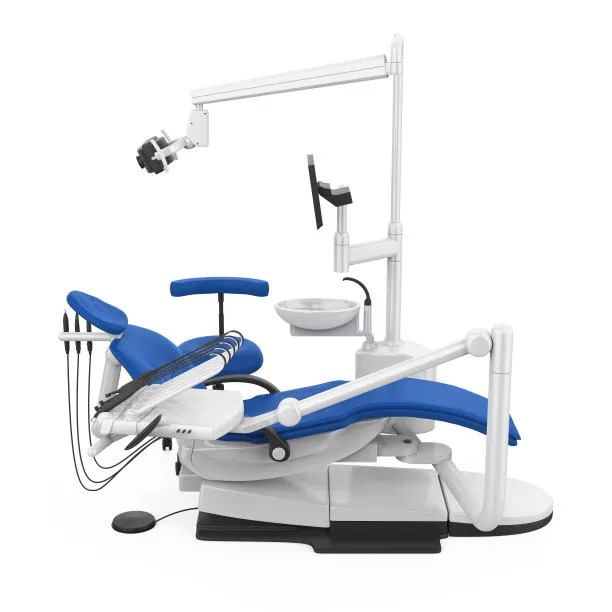Understanding the Causes and Consequences of Periodontal Disease for Better Oral Health Management Strategies
Summary: Understanding periodontal disease is vital for improving oral health management strategies. This article explores the multifaceted causes, including bacterial infections, genetic factors, and lifestyle choices that contribute to periodontal disease. It also delves into the significant consequences of untreated periodontal disease, such as tooth loss, systemic health issues, and economic burdens. By understanding these factors, healthcare providers and patients can implement more effective prevention and treatment strategies, ultimately leading to better oral health outcomes. The article aims to equip readers with knowledge that fosters proactive and informed dental care.
1. Causes of Periodontal Disease

Periodontal disease primarily arises from the accumulation of plaque, a sticky film of bacteria that forms on teeth. When plaque is not removed through proper oral hygiene, it can harden into tartar, leading to inflammation of the gums known as gingivitis. If left untreated, this can progress to periodontitis, a more severe condition affecting the bone that supports the teeth.
Genetic predisposition is another significant cause of periodontal disease. Research shows that individuals with a family history of gum disease are more likely to experience similar issues. Genetic factors can influence inflammatory responses and the bodys ability to combat bacterial infections, making some individuals more vulnerable than others.
Lifestyle choices, such as smoking and poor diet, also play a crucial role in the development of periodontal disease. Smoking not only weakens the immune system but also promotes the growth of harmful bacteria in the mouth. Additionally, diets high in sugar can exacerbate plaque buildup, contributing to gum disease. Understanding these causes is essential for developing effective prevention strategies.
2. Consequences of Untreated Periodontal Disease
The consequences of untreated periodontal disease can be severe, one of the most significant being tooth loss. As the condition progresses, it can cause the gums to recede, leading to the loss of support for teeth. This not only affects chewing and speaking but also has psychological implications, impacting self-esteem and social interactions.
Moreover, periodontal disease is increasingly recognized for its association with systemic health issues. Studies have linked it to various conditions, including diabetes, heart disease, and respiratory problems. The inflammation associated with gum disease can enter the bloodstream, exacerbating these health issues and creating a vicious cycle of poor health.
The economic burden of periodontal disease is another consequence that should not be overlooked. The costs associated with treatment, tooth replacement, and managing related health conditions can be substantial. Preventive measures and early intervention are therefore crucial to reduce both health risks and financial strain on individuals and healthcare systems.
3. Prevention Strategies for Periodontal Disease
Effective prevention of periodontal disease begins with good oral hygiene practices. Regular brushing and flossing can significantly reduce plaque accumulation, which is key to avoiding gum disease. Dental professionals recommend brushing twice a day and flossing at least once a day to maintain optimum oral hygiene.
Regular dental check-ups are equally important. Professional cleanings by a dentist or hygienist can remove tartar and plaque that home care may miss. Additionally, these check-ups allow for early detection of any developing issues, enabling timely intervention which can prevent progression to more severe stages of periodontal disease.
Education and awareness efforts targeting high-risk populations can further enhance prevention strategies. Programs that inform individuals about the risks associated with smoking and poor nutrition can motivate healthier lifestyle changes. Increased awareness can facilitate early adoption of good oral health practices, ultimately reducing the prevalence of periodontal disease.
4. Treatment Approaches for Periodontal Disease
Treatment for periodontal disease varies based on the severity of the condition. Initial treatment often involves non-surgical approaches such as scaling and root planing, which help to clean the teeth and beneath the gums. This process removes plaque and tartar, allowing the gums to heal effectively.
In more severe cases, surgical treatments may be necessary to restore periodontal health. Procedures such as flap surgery or bone grafting might be undertaken to remove disease tissue and encourage the regeneration of healthy bone and gum tissue. These interventions are essential for patients with advanced periodontal disease to prevent tooth loss.
Patient adherence to proposed treatment plans is crucial in managing periodontal disease. Healthcare providers play a pivotal role in motivating patients to comply with prescribed therapies and follow-up care. Engaging in regular discussions about treatment goals and progress can enhance patient motivation and ensure more successful outcomes.
Summary:
This article highlights the diverse causes and severe consequences of periodontal disease, emphasizing the necessity of understanding these factors for better oral health management. Through effective prevention strategies and appropriate treatment approaches, individuals can significantly reduce their risk and manage existing conditions. By prioritizing oral health, we can improve overall well-being and avoid costly repercussions.
This article is compiled by Vickong Dental and the content is for reference only.


